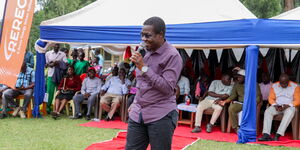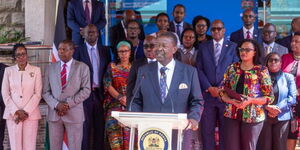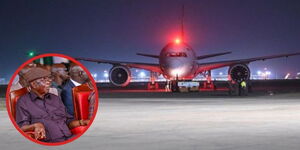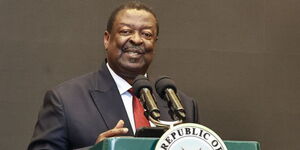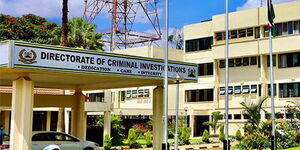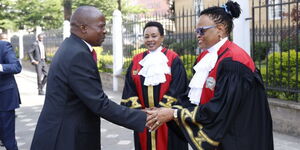Transport Cabinet Secretary Kipchumba Murkomen on Monday, November 14 held talks with representatives from the World Bank.
A Communiqué from Murkomen's office stated that the discussions centred on matters of mutual interest including the ongoing construction of the highway linking Kenya to South Sudan.
The delegation was led by Wendy Hughes (Regional Director for Infrastructure for Eastern and Southern Africa) and Almud Weitz (World Bank Practice Manager for Transport), and a team from South Sudan's Ministry of Roads and Bridges led by Eng. James Alam.
The construction of the Isiolo-Mandera highway linking Kenya to Ethiopia and Somalia was also discussed.
The road upon completion will transform transport in the North Eastern and North Western.
“We also discussed ways of improving urban mobility by offering mass rapid transit options and facilities for non-motorized traffic in Nairobi and other major towns across Kenya to enable faster, cheaper, efficient and safe travel,” stated the CS.
The delegation also explored ways of supporting the development of infrastructure for rural mobility to ensure effective and reliable last-mile connectivity to the national highway network.
“I thank the World Bank for their longstanding partnership in the roads and transport sectors and look forward to the successful completion of the ongoing projects and the development of new initiatives that will support micro, small, and medium enterprises as well as regional trade,” added the CS.
This meeting came barely a week after Kenya secured six projects worth 500 billion Shillings ($4.11 billion) that will be fast-tracked under a new pact signed by President William Ruto and UK Prime Minister Rishi Sunak on the sidelines of COP27, Business Daily newspaper reported.
The deal includes a new multipurpose dam, the country’s second expensive infrastructure project, costing 425 billion Shillings.
The dam was initially estimated to cost about 220 billion shillings.
Led by UK engineering firm GBM, the project will include both a power purchase agreement for clean energy and a water purchase agreement for agricultural irrigation, the UK government stated in a statement.


